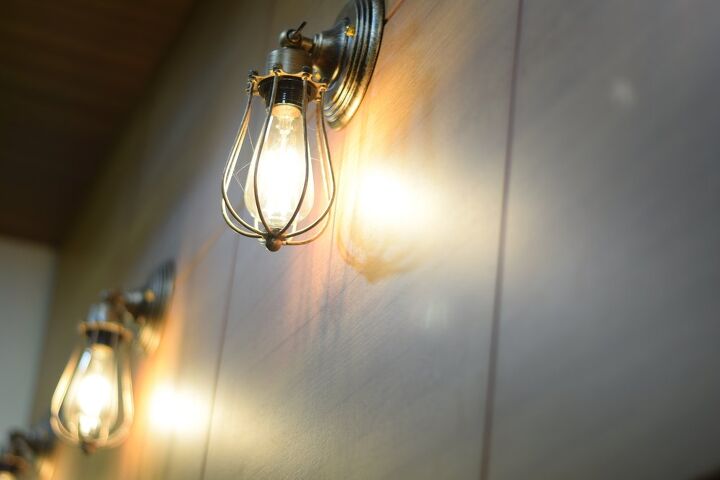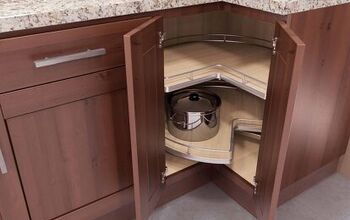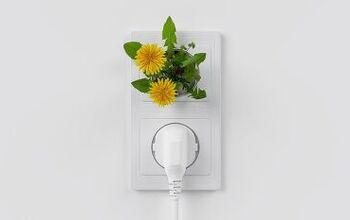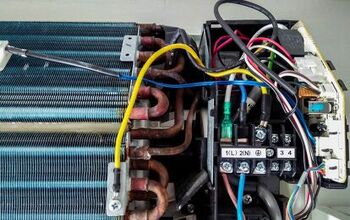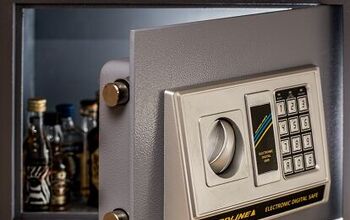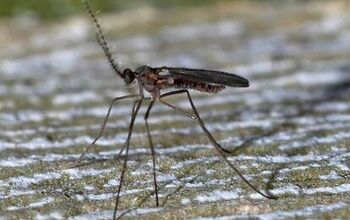Why Are My Lights Flickering?

Flickering lights can be a scary sight to behold in both horror movies and real life. Your lights can flicker for a variety of reasons, but it’s hard to pinpoint the cause if you are inexperienced with electrical work. Many homeowners ask themselves: why are my lights flickering and how do I fix them?
Your lights are likely flickering due to a power surge or circuit overload. A power surge can cause your lights to flicker if lightning strikes nearby or if an appliance experiences a voltage fluctuation. Inspect your bulbs to make sure that they are compatible with your fixture if your lights are flickering and replace them if they aren’t.
Contact a professional electrician if your lights keep flickering after you try several solutions. Sometimes, flickering lights are a sign that you have a serious electrical problem, so you don’t want to waste any time.
Why Do My Lights Flicker In My House?
Lights can flicker due to everything from old wiring and strong winds to faulty switches. Sometimes, the problem is as simple as tightening a bulb. That’s not always the case, however, because flickering lights can sometimes indicate a larger electrical problem.
Leave your home if you notice a burning smell when your lights flicker, as this can be a dangerous sign. However, you don’t always need to worry when your lights are flickering because it’s often a simple problem. Let’s take a look at the top causes and fixes for lights that are flickering.
1. Old Wiring
Old wiring is to blame in many cases if lights flicker throughout your whole house. This can also be the case if all of the lights in a particular area flicker. However, sometimes this can point to a bad circuit in one area and not old wiring throughout your entire home.
Electric wiring lasts for an average of 60 years, but it can go bad in 40-50 years or sooner. You can find out whether or not you should replace your electrical wiring if you hire an electrician to inspect your home. It typically costs at least $2,000 to replace all of the old wiring in an old house, but it can cost as much as $8,000 in some cases.
2. Circuit Overload
A circuit overload can explain why your lights are flickering. You can tell that this is the problem if the lights are flickering in a specific area. This is a sign that a single circuit is overloaded if the electronics throughout the rest of your home work fine.
Unplug some of the electronics that are plugged into a particular circuit to avoid an overload. Circuits get overloaded when you plug in and use too many electronic devices at a time. A circuit is only rated for so much power, so your lights will flicker if you exceed the limit.
3. Power Surge
A power surge can cause the lights in your house to flicker, and this can be dangerous. Surges occur when the power in your home fluctuates and spikes to a high level. This can happen due to a voltage fluctuation from a large appliance, such as a washer or dryer.
Power surges commonly happen when lightning strikes near your home. Lighting can cause thousands of volts of electricity to surge through the grid that your home is on. Contact an electrician right away if you have a power surge so they can make sure that your home didn’t suffer serious damage.
Leave your home if you notice a burning smell accompanied by your lights flickering. Power surges can cause a fire, so it’s important to pay attention when your lights start to flicker.
4. Loose Bulbs
Loose bulbs are the easiest and most common reasons why your lights are flickering. This is especially true if only one light is flickering. However, bulbs can come loose over time if they were screwed in by the same person at the same time.
All that you need to do is gently tighten the bulbs by hand to see if they continue to flicker. In many cases, this is all that you will need to do and your light will stop flickering. However, you can tell that something else is wrong if it doesn’t help and you’ll need to keep troubleshooting.
5. Faulty Switch
Your lights may be flickering if you have a faulty switch. Some types of bulbs aren’t meant to work with all kinds of switches which can cause your lights to flicker. For example, a dimmer switch won’t work as intended if you have a bulb that isn’t meant to be dimmed.
The switch could be a problem even if you use compatible bulbs in many cases. Inspect the switch’s wiring or hire a professional to make sure that nothing is loose or damaged. You can expect to spend up to $150 to rewire a switch for a light fixture.
6. Strong Winds
Thunder and lightning aren’t the only natural phenomena that can explain why your lights are flickering. Strong winds can cause electrical problems such as flickering lights, especially if trees surround your power lines. Tree branches can slam into power lines when the wind is strong and aggressive.
This can cause your lights to flicker if you live near the power lines in some cases. There is nothing that you can do about this situation, unfortunately. Your best bet is to call the power company and express your concern about trees being that close to the power lines. It is common for power companies to trim trees near power lines, so you may speed up the process.
7. Incompatible Bulbs
Did you recently change the bulbs in several light fixtures in your home? It is common for homeowners to upgrade to new bulbs only to notice that their lights are flickering. Your lights will flicker if you install a bulb that is incompatible with a particular fixture.
That is why you need to check the wattage rating on a fixture before you change the bulb. You can find the recommended wattage inside the socket of most light fixtures. Install a bulb that coincides with the wattage that your fixture is rated for, and see if the lights keep flickering.
8. Electrical Work
Sometimes, the problem is as simple as nearby electrical work. You may not need to look further than your neighbor’s house if you notice your lights flickering for no apparent reason. This is often the case if your lights flicker during the day when there is no inclement weather or power surge.
Otherwise, you can contact your local power supplier to see if they are servicing any homes in your area. Electrical work can cause lights to flicker and even your power to go out entirely in some cases. Luckily, this is usually a temporary problem that will resolve within an hour.
Should I Worry If My Lights Flicker?
You don’t always need to worry if your lights flicker, but you should pay close attention. Watch for patterns and pay attention to the other lights in your home. Contact an electrician to inspect the wiring and circuitry in your home to make sure nothing is wrong.
The explanation could be as simple as a storm or power surge. However, problems such as outdated wiring can be dangerous so it’s important to get a professional opinion. Flickering lights can sometimes indicate a serious problem such as a power surge so you shouldn’t take any chances.
You have less to worry about if the lights are only flickering in a single room or area of your home. This is a sign that only that particular circuit is overloaded or has a wiring problem. However, you still need to address the problem because an overloaded circuit can cause a fire in some cases.
Related Guides

Nick Durante is a professional writer with a primary focus on home improvement. When he is not writing about home improvement or taking on projects around the house, he likes to read and create art. He is always looking towards the newest trends in home improvement.
More by Nick Durante



